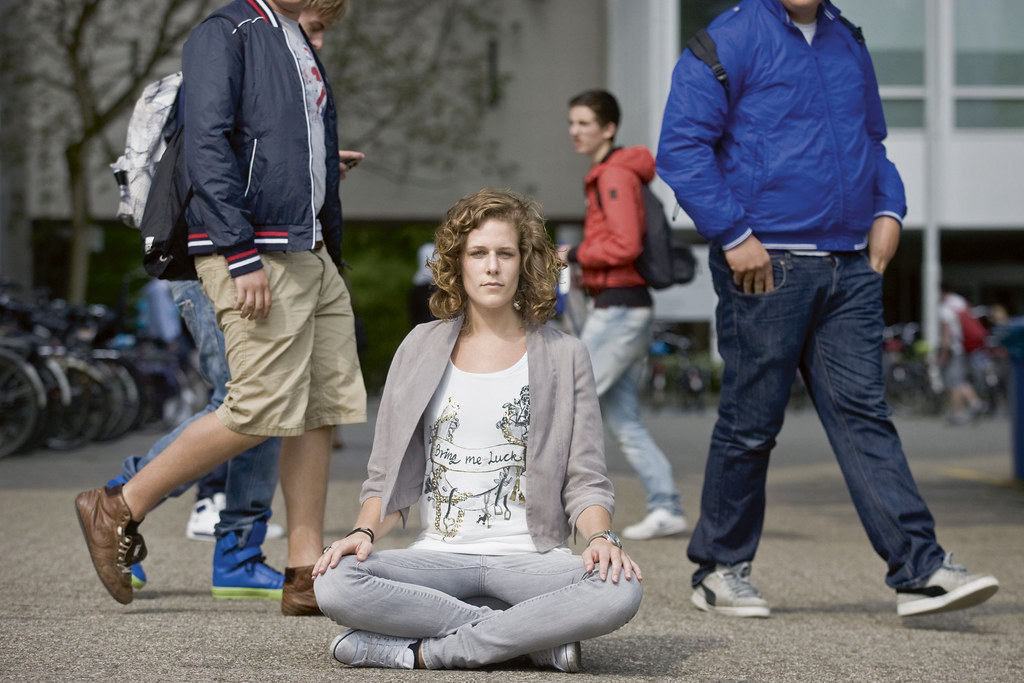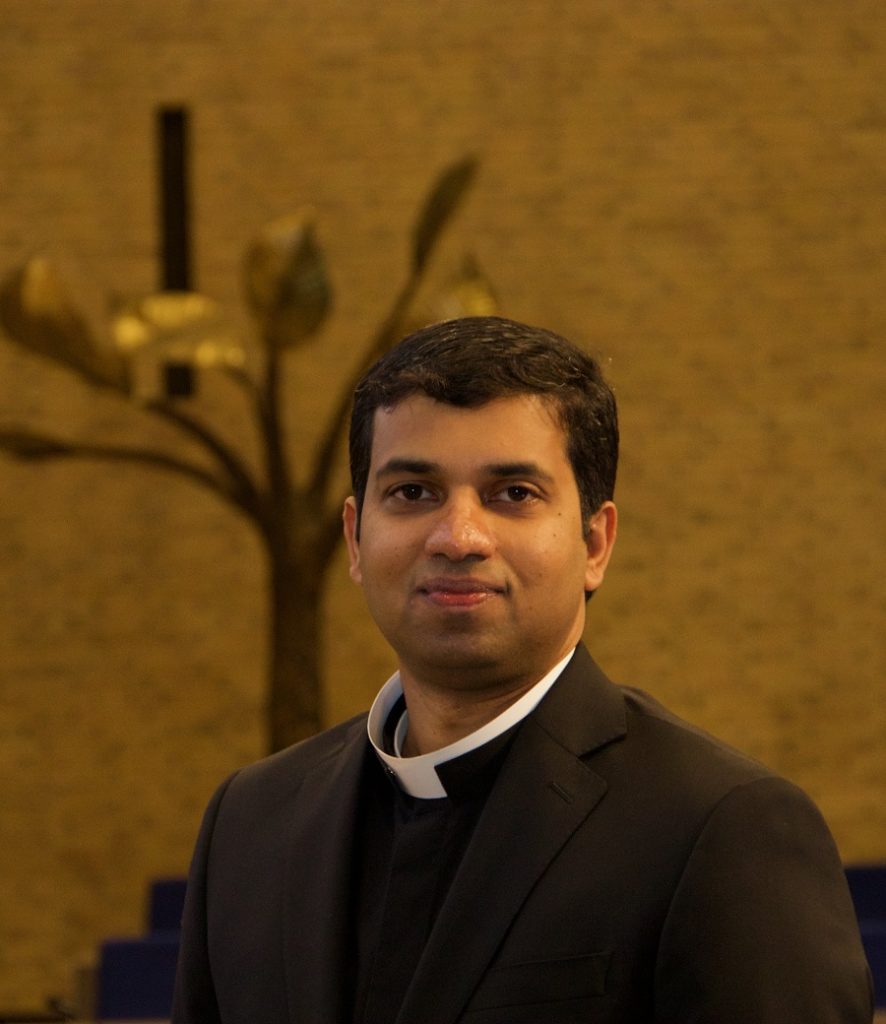Religion has not disappeared from Western European society
Houses of worship are emptying. Blasphemy is not forbidden and praying for a deceased loved one is not the norm. Religion has lost its grip on Dutch society. According to the secularization theory, the declining interest in religion is at the root of this. The famous statement “God is dead!” by the philosopher Friedrich Nietzsche would therefore be appropriate. “Nonsense,” argues Jeff Shawn Jose in his PhD thesis.

According to researcher Jeff Shawn Jose, religion still plays a major role in the Western public sphere. Education, for example, is part of the public sphere, but it has not completely detached itself from religious affiliations. Just last year, a teacher from Rotterdam had to go into hiding after receiving threats. The reason for this was the showing of—it was thought—a Mohammed cartoon. Incidentally, this turned out not to be a Mohammed cartoon.
Also, the anti-abortion advertisements aired on public radio and television stations during ’the week of life’ prove that religion is not limited to the private sphere. This advertising time was financed by various pro-life organizations, Christian parties, and private donations.
Western dominance
The origins of the secularization theory lie in the Age of Enlightenment. This movement shifted the focus from religion to human reasoning. By relying entirely on reason, religion was no longer conflated with the modern world. As a result, religion slowly became something that took place only in the private sphere. In the 1950s, the term “secularization” was introduced to describe the declining influence of the church on social life.
According to Jose, secularization theory is problematic today because religion does, in fact, have a presence in the public sphere: “A doctor will not let his patient touch a relic to get better, but will use his knowledge of medicine for a speedy recovery. Yet the vocation to be a doctor may be deeply rooted in a religious belief.”
The problem with secularization theory, according to him, lies primarily in the Western dominance determining the ‘modern norm’. “The development towards a modern society and the subordinate role of the church mainly took place in Western Europe. So, this is not necessarily a global development,” he explains.
The secularization theory does not take into account the globalized society in Western Europe. Dutch society no longer consists for the most part of people with a Western European background and culture. In addition, there is a clear emergence of alternative religious and spiritual movements that also show themselves in the public space. Consider, for example, the popularity of mindfulness. Not everyone limits his or her religious expressions to the private sphere.
According to Jose, such a globalized society requires a breath of fresh air: “The existing academic and political responses to the role of religion within a society need to be revised and enriched.”
Rawls and Gandhi
In his thesis, Jose puts this fresh spin on the subject. He examines the role of religion in the public sphere through the works of John Rawls and Mahatma Gandhi.
“The increasing globalization calls for an approach to this issue from a Western and non-Western perspective. To do justice to this, I have chosen the approaches of Rawls and Gandhi in my research,” states Jose.

At first glance, a somewhat remarkable combination. For what binds the American political-liberal philosopher to a spiritual leader from India? From different perspectives, Rawls and Gandhi share the importance of giving religion a role in the public sphere, and thus, both turn against secularization theory.
For example, in his second main work, Political Liberalism, Rawls argues that people with different religions and life convictions can subscribe to the interests of a liberal democracy. Gandhi, in turn, writes about the necessity of equal treatment of all religions.
But it remains a challenge to correctly compare Rawls and Gandhi. After all, Rawls was an academic, while Gandhi wrote for a broad audience. In addition, Rawls focused on the development of a legal and constitutional framework so that, in his view, a liberal democracy could function optimally. Gandhi, on the other hand, emphasized the personal development of the individual.
Integrity, fairness, and stability
Yet in his thesis, Jose manages to build a bridge between the ideologies of Rawls and Gandhi. He does this by listing three objections to the restriction of religious expression that a dominant secular society imposes on believers.
First, the objection of integrity. This concerns the burden that believers experience from dominant secular beliefs in that these do not necessarily match their own beliefs. As a result, believers are sometimes asked to set aside their religious beliefs when they are part of the public sphere.
This happens, for example, when female Islamic employees are asked not to wear a headscarf during working hours. For these women, their headscarves are a fundamental part of their integrity: “Just by asking these women to remove their headscarves, their whole integrity is questioned. This can be a huge burden for these women,” Jose states.
In addition, Jose describes the objection of fairness. This refers to the unequal distribution of burdens that religious people face in contrast to the non-believing citizen. In societies where secular beliefs prevail, believers in particular must endlessly justify their beliefs. This is while the beliefs of non-believers are often accepted without too much discussion. For example, when someone states that they do not want to drink alcohol in order to live a healthier life, this is less often questioned than when someone does this based on religious convictions. This is not fair or equitable, according to the researcher.
Finally, the objection on the grounds of stability. Restrictions are often placed on religious expression to ensure stability in a society. But the claim that a marked presence of religion destabilizes a society is false according to Jose: “In the United States, for example, religion has made a moral contribution to the civil rights movement. This is done with the very intention of stabilizing society”.
Living Together
By bringing together Rawls and Gandhi in his thesis, Jose hopes to provide the academic and political world with a new understanding of the relationship between religion and the politically liberal framework: “Indeed, it is quite possible for secular and religious people to live together in the Western public sphere.”
Religion and radical pluralism: A Critical Analysis of Rawls’s Public Reason and Gandhi’s Stance by Jeff Shawn Jose
Translated by Language Center, Riet Bettonviel






